Research demonstrates strong links between national success and grassroots participation, meaning that the Roses are playing for more than just a medal. For those unfamiliar with the current game, netball is a fast-paced invasion team sport. This means aiming to get possession of the ball while attacking (invading) the defensive team’s goal area. It comprises two teams of seven players competing against one another to score the most goals over a duration of sixty minutes, which is divided into four quarters of play. Players are assigned specific positions, with each allocated areas of the court in which they can move, with two players on each team able to shoot and score a goal. The seven positions are Goal Shooter (GS), Goal Attack (GA), Wing Attack (WA), Centre (C), Wing Defence (WD), Goal Defence (GD) and Goal Keeper (GK).
Netball was originally developed as a game that was primarily played by women and girls. Initially adapted from the game of basketball in America in 1891, netball was first played in England in 1895 at Madame Ostenburg’s College. At that time, vigorous exercise for women was not typically well received, but netball in England was accepted because ‘despite being vigorous games they appeared to conform to dominant understandings of femininity as a form of physical restraint’. Netball was viewed as more suitable for girls as it was graceful rather than powerful and grew in popularity throughout the 20th century, largely in British Commonwealth countries. Although viewed by many as conforming to a feminine ideal, netball has predominately remained a sport that is regulated and governed by women, rendering it as a vehicle of feminine agency to drive change and alter the perception of the sport and showcase the athleticism of the female body. Netball has undergone a vast transition from its inception to the game that we see today, with many rule changes over the years to improve the speed and excitement of the game.
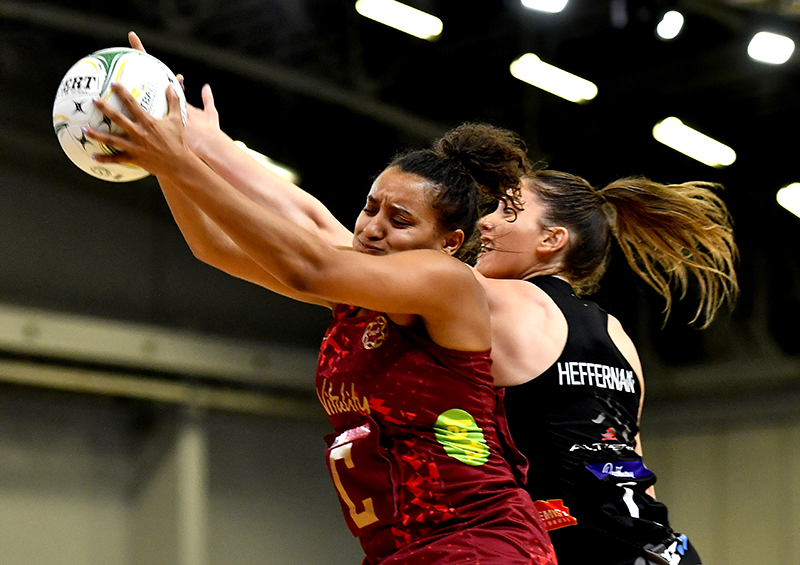 England Centre Imogen Allison will go to great lengths to receive the ball, defending her opponent, New Zealand Centre Kate Heffernan.Photograph of England netball player Imogen Allison receiving the ball in a game.
England Centre Imogen Allison will go to great lengths to receive the ball, defending her opponent, New Zealand Centre Kate Heffernan.Photograph of England netball player Imogen Allison receiving the ball in a game.
Netball is the most popular female team sport in England, and its popularity grew rapidly in 2019. This increase was a likely effect of the rising visibility of the England Women’s team following their 2018 Commonwealth Games gold medal, and the 2019 Netball World Cup being held in Liverpool, where 550,000 people tuned in to watch England’s semi-final on Sky Sports, where they gained bronze. Then came the global pandemic, temporarily halting the momentum of the Roses, with periods of total suspension of grassroots netball. Inevitably, the pandemic led to a reduction in the participation figures, and the 2022 Commonwealth Games in Birmingham saw the Roses narrowly miss out on bronze to finish fourth. Despite these setbacks, figures show that netball is bouncing back and participation figures are once again on the rise. The visibility of netball has continued to grow with the Vitality Superleague, comprising 10 teams, regularly shown on Sky TV and across various platforms, attracting new fans to the sport and showcasing the skill and power of the modern-day players. The rise in popularity and success of netball has led to increased funding into the grassroots level of the sport.
In 2022, Sport England pledged to invest £21.2 million over a period of 5 years to continue to grow and develop netball in England with a number of initiatives planned. This builds on previous investments over 10 years of £55 million of Sport England and National Lottery money into netball initiatives. The largest programme to benefit from this investment was the Back to Netball (B2N) scheme, launched by England Netball in 2008, which has seen over 150,000 women take part. B2N is a national scheme aimed at women of all ages and experience to provide a fun and relaxed reintroduction to netball, with various sessions running around the country. Data collected via an England Netball impact report showed that 89% of B2N participants stayed in the scheme for less than two years with 37% progressing to playing formal club netball. Although, of those that didn’t continue with netball, 52% stayed active via other forms of physical activity (running, jogging, walking, fitness classes, gym or swimming). The B2N scheme remains active in various locations across England.
With the pandemic hitting, participation figures and the Roses missing out on Bronze in Birmingham 2022, the World Cup this year is a much-needed platform to build on the new post-pandemic era of grassroots netball by achieving success on a world stage.
Explore more netball content
-
Vitality Netball Nations Cup 2025: can the England Roses go all the way?
Read now to access more details of Vitality Netball Nations Cup 2025: can the England Roses go all the way?The Vitality Netball Nations Cup kicked off on 1 February 2025. Find out more in this article.

Article
Level: 1 Introductory
-
Netball Super League 2025: the Nottingham Forest rise to success!
Read now to access more details of Netball Super League 2025: the Nottingham Forest rise to success!Learn about Nottingham Forest Netball and their rise to success in this article.

Article
Level: 1 Introductory
-
Why is Netball and other team sports so important for female sports participation?
Read now to access more details of Why is Netball and other team sports so important for female sports participation?With a summer of women’s world cups soon to be upon us, this article looks at why participation in team sports such as netball is a vital factor in the quest to close the gender gap and encourage more women to be active.

Article
Level: 1 Introductory
-
Vitality Netball World Cup 2023 – what’s it all about and who is going to win?
Read now to access more details of Vitality Netball World Cup 2023 – what’s it all about and who is going to win?The summer of 2023 is turning into another significant one for women’s sport. Alongside the women’s football world cup and the women’s Ashes cricket series we also have the Vitality Netball World Cup.

Article
Level: 1 Introductory
Explore more women in sport
-
The Women’s World Cup 2023
Read now to access more details of The Women’s World Cup 2023The women’s World Cup tournament starts on 20 July 2023 and is being held in Australia and New Zealand. Take a look at our dedicated content for the tournament.
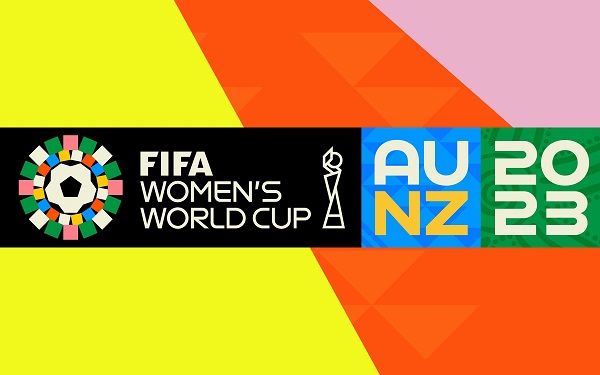
-
Women in sport: insights from gold medallists
Watch now to access more details of Women in sport: insights from gold medallistsOpenLearn is celebrating International Women's Day. Watch these videos of Olympic champions Helen Richardson-Walsh and Alex Danson discussing their experiences of sport.

-
Issues in women's health in relation to sport and fitness
Read now to access more details of Issues in women's health in relation to sport and fitnessExplore some themes in women's sport in the following animations.

-
Women in sport
Read now to access more details of Women in sportEver thought about sports and wondered, but what about for a woman? These articles cover specific topics concerning women in sport, considering questions such as, what if Eliod Kipchoge was a woman? Are women leaders the key to growing women’s sport? What about motherhood, what are the challenges in returning to sport or starting up a new sport?

-
Issues in women’s football
Read now to access more details of Issues in women’s footballIn these three audios, Dr Carrie Dunn discusses a number of important areas of women’s football.

-
World-Changing Women: Cynisca
Read now to access more details of World-Changing Women: CyniscaSpartan females had much more freedom than other women in the ancient world; this allowed Cynisca of Sparta to win the Olympics twice. Find out more about her victories here...
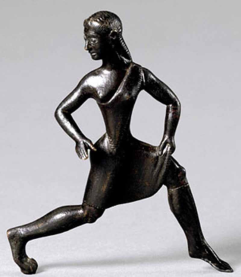
Fanatical about sport? Try one of our free courses
-
Supporting female performance in sport and fitness
Learn more to access more details of Supporting female performance in sport and fitnessDo you support women’s performance in sport or fitness as a coach or parent? Are you a female athlete who wants to optimise your performance using recent research insights? If so, then this free course is for you. It addresses the problem of sports science research traditionally being male dominated and the assumption that if it works for men ...

-
The business of football
Learn more to access more details of The business of footballThis free course, The business of football, was produced by The Open University working in partnership with The English Football League Trust. If you are fascinated by men's and women's football and interested in discovering more about business and management, then this engaging and stimulating course is for you.

-
Sporting women in the media
Learn more to access more details of Sporting women in the mediaThe mass media (e.g. radio, TV, internet) has become one of the most powerful institutional influences in society. This free course, Sporting women in the media, explores whether gendered inequalities exist in sport by evaluating the media coverage. The media can be highly influential in shaping perceptions about gender in sport and headlines ...

-
The athlete’s journey: transitions through sport
Learn more to access more details of The athlete’s journey: transitions through sportThe athlete’s journey through sport can be characterised by several transitions and periods of change. This course is designed to help you understand that journey, whether in reference to a professional or recreational athlete, and the nature of support they may need at different times. The course also provides practical guidance, whether ...

-
Coaching others to coach
Learn more to access more details of Coaching others to coachAre you responsible for supporting sport and physical activity coaches to become inspirational and excellent in their practice? This course is designed for coach developers, educators, mentors and tutors who support coaches to improve. You will explore how people learn, what are the skills and qualities of an effective coach of coaches, as well ...

-
Communication and working relationships in sport and fitness
Learn more to access more details of Communication and working relationships in sport and fitnessThis free course, Communication and working relationships in sport and fitness, explores the personal skills that underpin so much work in sport and gyms. We often hear employers refer to the importance of these interpersonal relationships or ‘soft skills’ in sport and fitness, and in this unique course you’ll build valuable insights into ...

-
Exploring sport coaching and psychology
Learn more to access more details of Exploring sport coaching and psychologyThis free course, Exploring sport coaching and psychology, investigates how scientific and management ideas contribute to success while also taking you on a journey through unique sporting case studies and insights that will change how you view and study sport. You will consider how the mind, the body, the environment and training techniques all...

-
Exploring the psychological aspects of sport injury
Learn more to access more details of Exploring the psychological aspects of sport injuryHave you ever experienced a sport injury? Have you ever thought there could be a psychological dimension to sport injuries, as well as a physical one? Sport injury is relatively common among sport and exercise participants, and while the physical impact of injury is often easy to recognise, the psychological impact is less obvious. In this ...

-
The football World Cup: where sport and politics collide
Learn more to access more details of The football World Cup: where sport and politics collideOccasionally, controversies arise that remind us of the link between sport and politics. It was once common for leading figures in the sporting world to declare that sport was, effectively, a politics-free zone. Sport was cast as the perpetual innocent party, liable to be corrupted by any connection with politics. However, it has become ...

-
Learning from sport burnout and overtraining
Learn more to access more details of Learning from sport burnout and overtrainingSport can place high levels of stress on athletes, coaches and others involved. If unable to cope with these stresses they may be vulnerable to developing burnout. This free course, Learning from sport burnout and overtraining, examines burnout in sport from various perspectives including both the coach’s and athlete’s perspective. Drawing on ...

-
Training for endurance in sport and fitness
Learn more to access more details of Training for endurance in sport and fitnessIn this free course you will explore an important aspect of strength and conditioning which refers to the physical preparation of athletes: endurance. You will look at the physiological factors that underpin endurance and assess how endurance can be developed relative to performance in a range of sports.

-
Training for speed and power in sport and fitness
Learn more to access more details of Training for speed and power in sport and fitnessIn this free course you will explore two aspects of strength and conditioning in sport and fitness: speed and power. Strength and conditioning is the physical preparation of athletes and in this course you will explore the physiology of speed before looking at training methods to develop speed. You will also look at power which is a concept ...

-
Developing employability through sport and physical activity
Learn more to access more details of Developing employability through sport and physical activityWhile many people recognise the positive impact of engaging in sport and/or physical activity on their physical and mental well-being, research indicates that participation can also equip us with valuable skills that enhance our employability. Engaging in sport and physical activity provides opportunities to develop a diverse skill set that can ...

-
Doping: a contemporary sports issue case study
Learn more to access more details of Doping: a contemporary sports issue case studyIn this free course, doping (performance enhancing drugs, or PEDs) is used as an example of how contemporary issues in sport might be studied. Doping is used to illustrate how you can think about the debates involved in an issue and this will help you develop appropriate skills to discuss other contemporary issues in sport.

-
Developing resilience in sport
Learn more to access more details of Developing resilience in sportIn this free course, Developing resilience in sport, you will explore how the concept of resilience can support athletes on their athletic development journey. You will examine how resilience can act as a buffer to protect against the challenges that might be faced by athletes and coaches. The protective qualities of resilience make it an ...
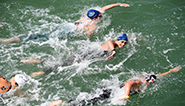
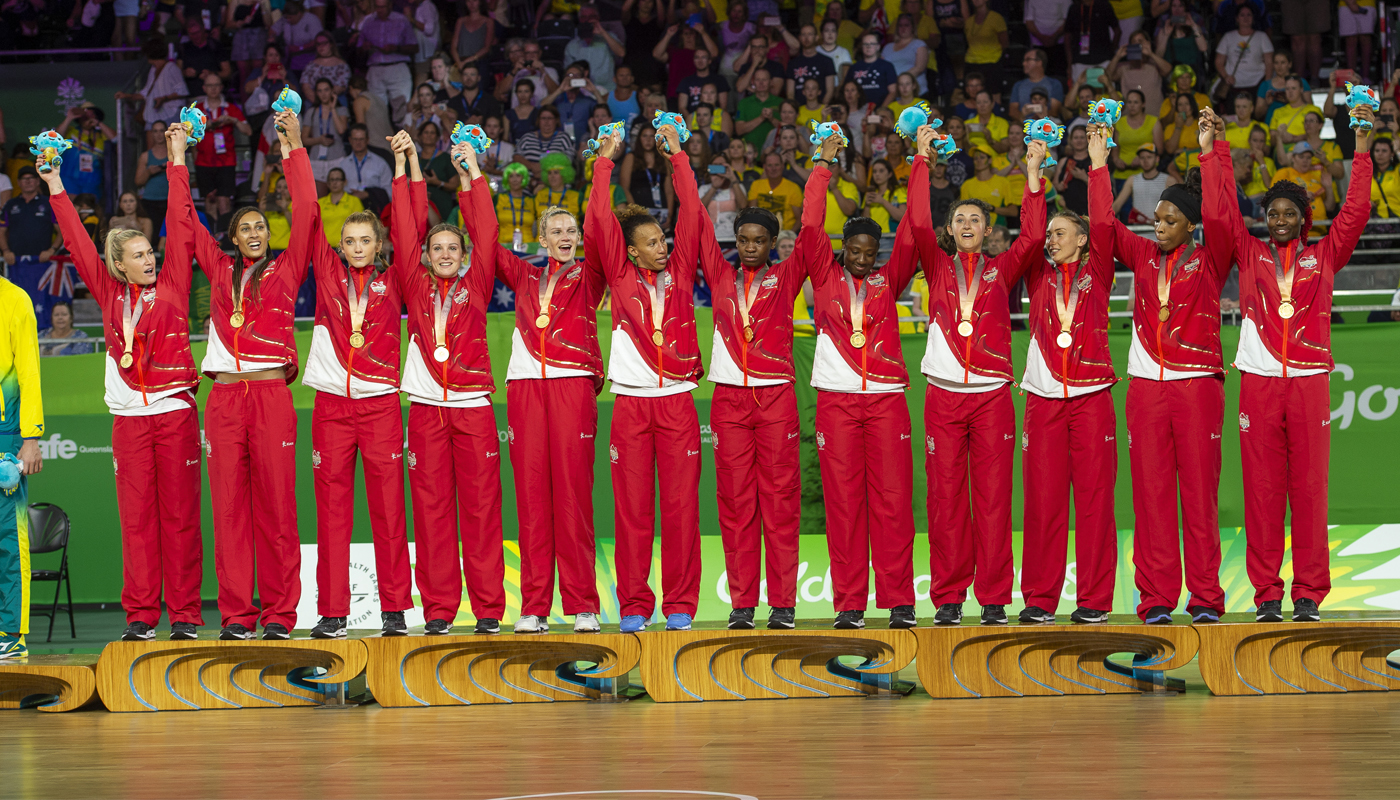
Rate and Review
Rate this article
Review this article
Log into OpenLearn to leave reviews and join in the conversation.
Article reviews